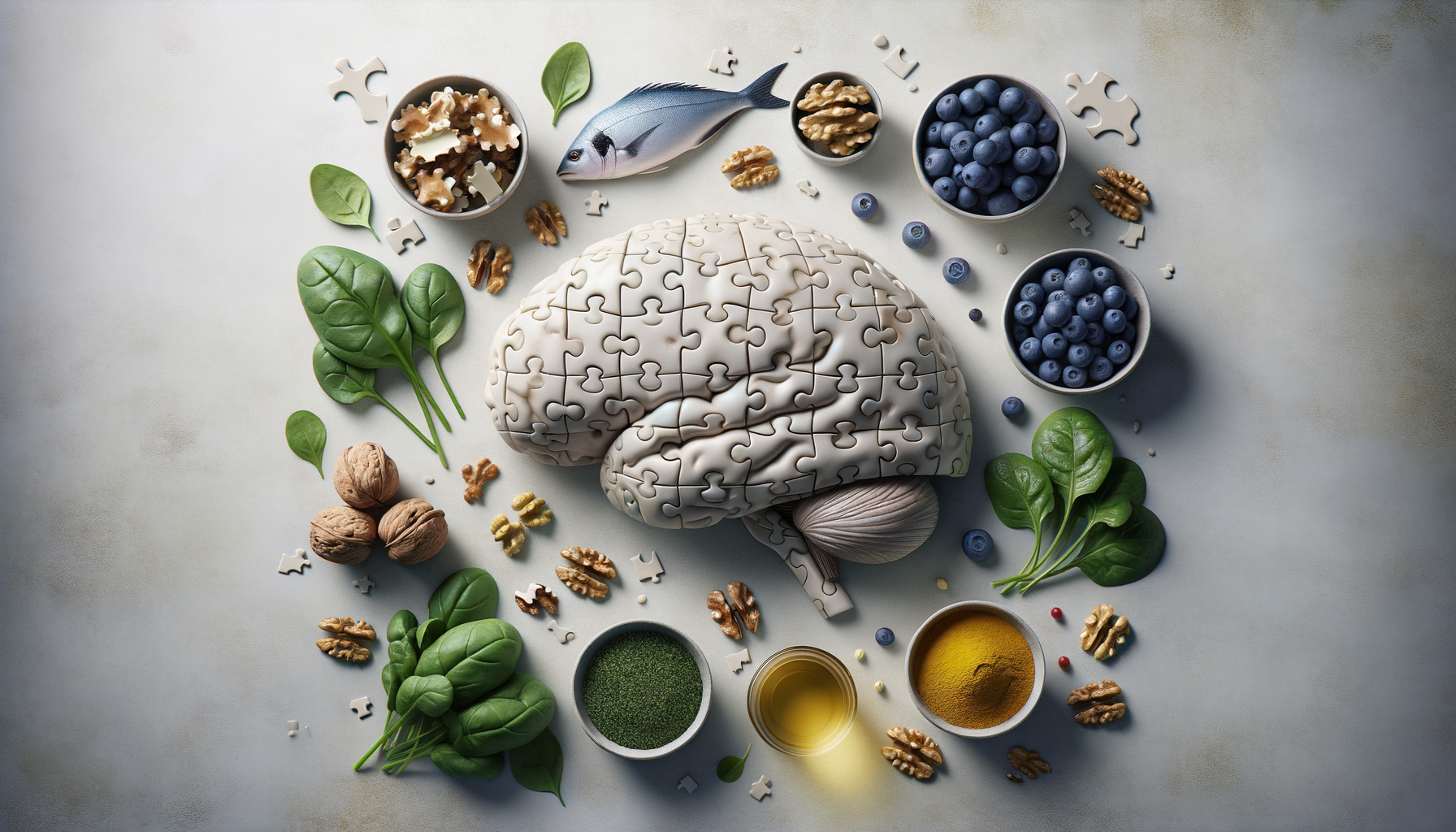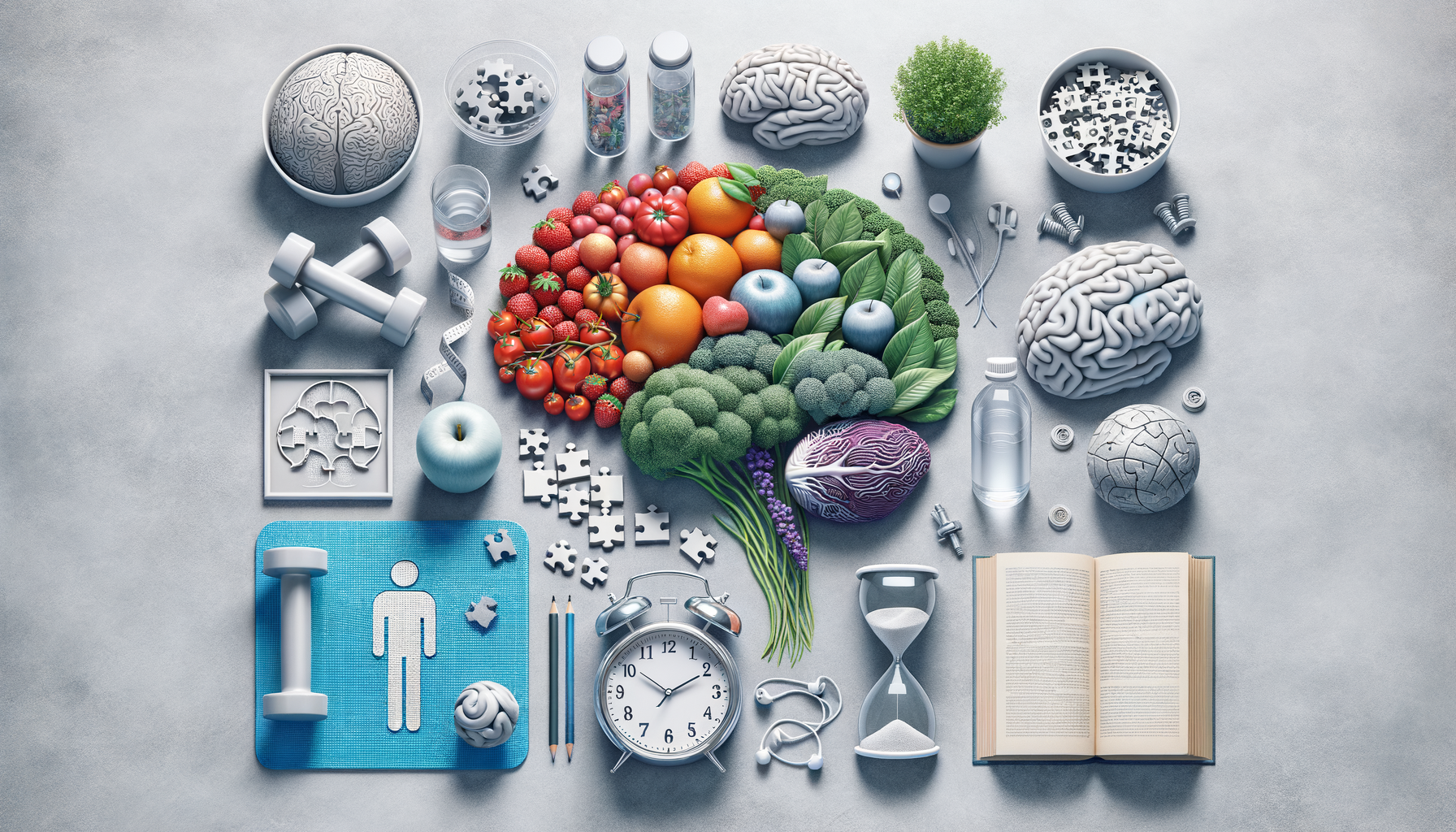The Importance of Nutrition in Memory Retention
Memory loss is a concern that affects many people as they age, but did you know that what you eat can play a significant role in maintaining cognitive function? The brain requires a variety of nutrients to function optimally, and a well-balanced diet can provide these essential elements. Incorporating specific foods into your diet can help support brain health and potentially reduce the risk of memory loss.
Research has shown that certain nutrients, such as omega-3 fatty acids, antioxidants, and vitamins, are crucial for brain health. These nutrients help protect brain cells from damage, support neural communication, and reduce inflammation, which is often linked to cognitive decline. By focusing on a diet rich in these nutrients, individuals can take proactive steps to preserve their memory and cognitive abilities.
As we delve into the world of brain-boosting foods, it’s important to understand that no single food can prevent memory loss entirely. However, a combination of these foods, along with a healthy lifestyle, can provide the brain with the support it needs to function at its best.
Fatty Fish: A Source of Omega-3 Fatty Acids
Fatty fish, such as salmon, trout, and sardines, are rich in omega-3 fatty acids, which are essential for brain health. Omega-3s are vital for building brain and nerve cells, and they play a key role in learning and memory. Studies have indicated that individuals with higher omega-3 levels tend to have improved cognitive function and a lower risk of developing Alzheimer’s disease.
These healthy fats help reduce inflammation in the brain, which can be a contributing factor to cognitive decline. Additionally, omega-3s are known to support the structure of brain cells, promoting better communication between neurons. Incorporating fatty fish into your diet a few times a week can be a delicious way to boost your brain health.
For those who do not consume fish, omega-3 supplements derived from algae are a viable alternative. It’s important to consult with a healthcare provider before starting any new supplement regimen to ensure it aligns with your individual health needs.
Berries: Packed with Antioxidants
Berries, such as blueberries, strawberries, and blackberries, are not only delicious but also packed with antioxidants that are beneficial for brain health. Antioxidants help combat oxidative stress, which can damage brain cells and contribute to memory loss. The flavonoids in berries have been linked to improved communication between brain cells and enhanced memory.
Research has shown that regular consumption of berries can delay brain aging by up to 2.5 years. This is because the antioxidants in berries help protect the brain from free radicals, which are unstable molecules that can cause cellular damage. By including a variety of berries in your diet, you can provide your brain with the protection it needs to maintain its function over time.
Whether enjoyed fresh, frozen, or dried, berries can be a versatile addition to your meals. They can be added to smoothies, cereals, or salads, making it easy to incorporate them into your daily diet.
Leafy Greens: A Nutrient Powerhouse
Leafy greens, such as spinach, kale, and Swiss chard, are nutrient powerhouses that can support brain health. These vegetables are rich in vitamins, minerals, and antioxidants that are essential for maintaining cognitive function. In particular, they are high in vitamin K, lutein, folate, and beta carotene, all of which have been linked to improved brain health.
Studies have suggested that consuming leafy greens regularly may help slow cognitive decline. This is because these nutrients support various brain functions, including the formation of new brain cells and the protection of existing ones. They also help reduce inflammation and improve circulation, both of which are important for optimal brain function.
Incorporating leafy greens into your diet can be as simple as adding them to salads, soups, or smoothies. Their versatility makes it easy to include them in a variety of dishes, ensuring you receive their brain-boosting benefits.
Nuts and Seeds: A Source of Healthy Fats
Nuts and seeds, such as walnuts, almonds, and flaxseeds, are excellent sources of healthy fats, antioxidants, and vitamins that can support brain health. These foods are rich in vitamin E, which has been associated with a reduced risk of cognitive decline. Vitamin E helps protect brain cells from oxidative stress and supports overall brain function.
Walnuts, in particular, are known for their high content of alpha-linolenic acid (ALA), a type of omega-3 fatty acid that is beneficial for the brain. Studies have shown that regular consumption of nuts and seeds can improve cognitive function and memory. They also provide a good source of protein and fiber, making them a satisfying snack option.
Incorporating nuts and seeds into your diet can be as simple as adding them to yogurt, oatmeal, or salads. They can also be enjoyed on their own as a convenient and nutritious snack. By including a variety of nuts and seeds in your diet, you can support your brain health and potentially reduce the risk of memory loss.




Leave a Reply